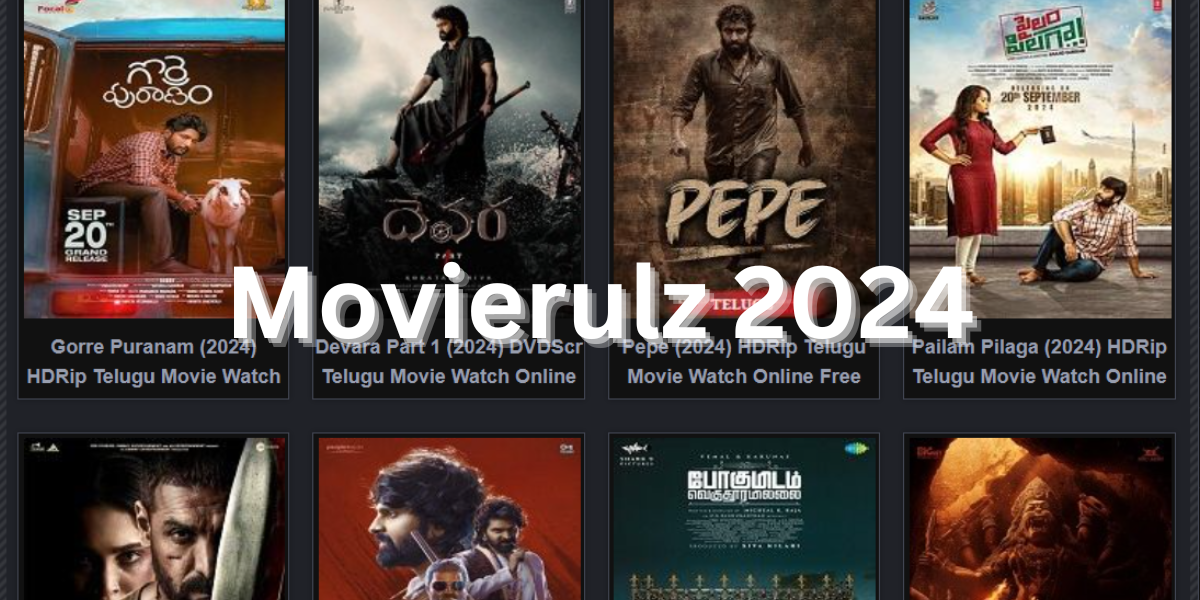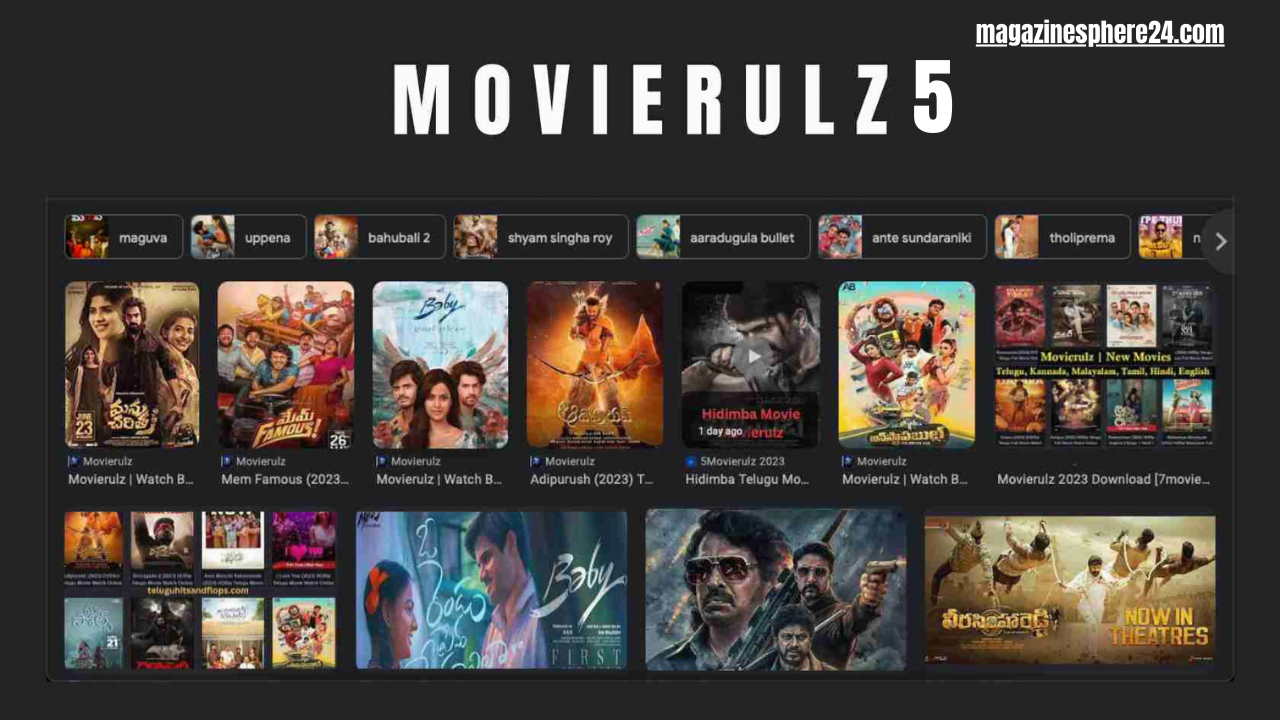Is the digital landscape truly becoming a boundless ocean of entertainment, or are we navigating increasingly choppy waters of copyright infringement and illegal streaming? The continued proliferation of websites like movierulz.com, particularly in 2024, signals a persistent challenge to the established entertainment industry, forcing us to confront the complexities of online content consumption and the ethical dilemmas that accompany it.
The allure of accessing the latest movies and television shows, often for free, is undeniable. Websites such as movierulz.com capitalize on this desire, offering a seemingly endless library of content. However, the ease with which this content is accessed belies a more complicated reality. These platforms operate in a legal gray area, often hosting or linking to copyrighted material without proper authorization. This has significant repercussions, not only for the entertainment industry but also for the individuals who consume this content. The question remains: are the benefits of immediate access worth the potential costs, both legally and morally?
The evolution of online entertainment has been rapid and transformative. From the early days of peer-to-peer file sharing to the rise of streaming services, the ways in which we consume media have changed dramatically. This evolution, however, has not been without its controversies. The advent of websites like movierulz.com represents a specific branch on this evolutionary tree, a branch characterized by illicit activities and the circumvention of established legal frameworks.
The core appeal of these sites lies in their user-friendliness and the sheer volume of content available. Often, they provide a vast selection of movies and television shows, spanning various genres and languages, all readily accessible with minimal effort. This convenience is a powerful draw, especially in an age where time is a precious commodity, and instant gratification is often the norm. Furthermore, the cost factor is significant. While legitimate streaming services require subscriptions, websites like movierulz.com offer content at no cost, making them particularly appealing to those who are budget-conscious or living in areas with limited access to legal streaming options. However, the supposed advantages of using such sites should be analyzed.
The mechanics behind the operation of these websites are often complex, but the underlying principle remains the same: to provide access to copyrighted material without permission. This can manifest in various ways, from direct hosting of files to linking to external sources or utilizing content delivery networks. They are designed to be easy to navigate and use and will often include a wealth of advertising revenue for the platform owner.
The impact of these websites on the entertainment industry is substantial. The piracy facilitated by platforms like movierulz.com has a direct financial impact on filmmakers, production companies, and distributors. When people choose to stream or download content illegally, the revenue streams that fund the creation of new films and television shows are diminished. This can lead to reduced investment in future projects, potentially impacting the quality and diversity of content available to the public. In addition, the piracy also hurts the legal streaming services as viewers opt to seek the same movies and shows from platforms such as movierulz.com.
Another critical aspect of the issue involves the potential risks associated with using these sites. Websites like movierulz.com often contain malware and viruses, which can compromise the security of users' devices and personal information. Additionally, users who access copyrighted content illegally risk legal consequences, including fines or even prosecution, depending on their location and the specific laws in place. The anonymity these sites offer can be a false sense of security, as law enforcement agencies are constantly working to track down and prosecute those involved in copyright infringement.
The rise of these platforms is a symptom of a broader problem: the ongoing evolution of the digital landscape and the struggle to adapt legal and regulatory frameworks to keep pace with technological advancements. The entertainment industry, in particular, has struggled to combat the spread of piracy and copyright infringement effectively. This has led to the development of various strategies, including legal action against websites that facilitate piracy, the use of digital watermarks to track down illegal copies of content, and the implementation of sophisticated anti-piracy measures.
Legitimate streaming services have a pivotal role to play. They provide a convenient and legal alternative to piracy, offering a wide range of content at a reasonable cost. By subscribing to these services, viewers can support the creation of new content while ensuring that they are not violating copyright laws. The user experience offered by these platforms, the ease of navigation and access, combined with the vast libraries of content, makes them a more attractive option than illegal sites.
Understanding the legal implications is paramount. Copyright law protects the rights of creators and owners of creative works, including movies and television shows. Unauthorized distribution or reproduction of copyrighted material is illegal and can result in significant penalties. Users who download or stream content from websites like movierulz.com are essentially violating copyright laws, even if they are not directly involved in the distribution of the content.
The ethical considerations surrounding the use of these websites are also essential. Copyright infringement is not merely a legal issue; it also raises questions about the moral responsibilities of viewers. By consuming pirated content, individuals are, in effect, stealing from the creators and owners of that content. This ethical dimension underscores the importance of supporting the legitimate entertainment industry and respecting the intellectual property rights of others.
The constant cat-and-mouse game between copyright holders and piracy websites is a critical component of this narrative. As legal pressure mounts, these sites often change their domain names, migrate to new servers, and adopt new tactics to evade detection and stay operational. This constant shift makes it difficult to shut them down completely and fuels the ongoing cycle of content infringement.
The future of online entertainment depends on several key factors. These include the effectiveness of anti-piracy measures, the continued evolution of streaming services, and the education of consumers about the legal and ethical implications of their choices. Collaboration between governments, industry stakeholders, and technology companies will be essential to combat piracy and protect the rights of content creators. Building awareness about the risks associated with illegal streaming and the benefits of supporting legitimate services could contribute to a more sustainable and ethical digital entertainment ecosystem. The best way to fight it is by being aware of the issue, and subscribing to legal streaming options.
Looking ahead to 2024 and beyond, the challenges posed by websites like movierulz.com are likely to persist. The entertainment industry will need to remain agile and proactive, developing new strategies to combat piracy and adapt to the ever-changing digital landscape. Promoting legal alternatives, enhancing user experiences on legitimate platforms, and raising public awareness of the consequences of piracy will be crucial in mitigating the damage caused by illegal streaming and protecting the interests of content creators and consumers alike. The best way to counter these is to remain informed about all that goes on, and to support legitimate entertainment services.


